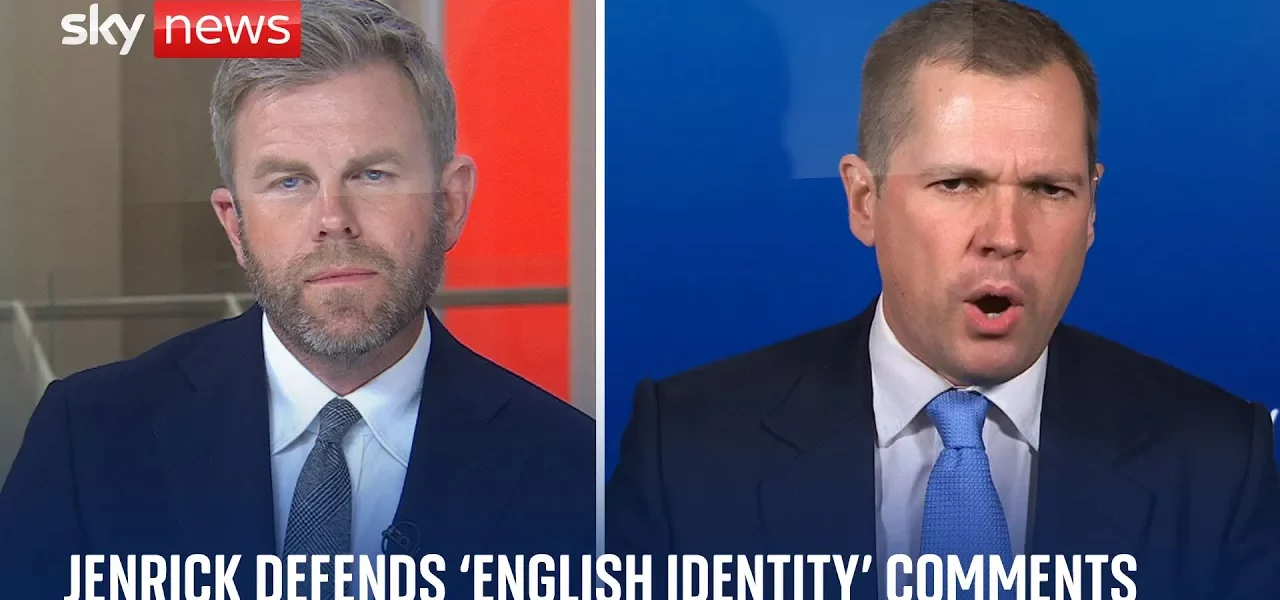Robert Jenrick: Protecting England’s National Identity

In a recent discussion, former Immigration Minister Robert Jenrick expressed his concerns regarding the erosion of England’s national identity due to mass immigration and cultural shifts. This article delves into his views, the implications of his claims, and the broader conversation around English identity and national pride.
Introduction to English Identity
English identity is a complex and multifaceted concept, deeply rooted in the nation’s history, culture, and values. As Robert Jenrick highlighted, this identity is essential for fostering a sense of unity and pride among the citizens of England. The discussion surrounding English identity becomes particularly relevant in the context of increasing immigration and globalization, which, according to Jenrick, poses a threat to the traditional ties that bind the nation together.
The Meaning of English Identity
During his conversation, Jenrick emphasized the importance of recognizing and celebrating English identity, much like the identities of Scotland and Wales. He argues that a strong sense of national identity is crucial for the future of the country. According to Jenrick:
- Every nation possesses a distinct history and culture.
- English history is rich and has made significant contributions to the world.
- It is vital to teach and celebrate this identity in schools and public institutions.
Defining English Identity
Jenrick’s perspective on English identity is anchored in the following elements:
- Historical Achievements: England’s contributions to global culture, science, and politics.
- Cultural Values: The manners, traditions, and social norms that characterize English society.
- National Pride: A strong sense of belonging and pride in one’s heritage.
The Impact of Mass Immigration
One of Jenrick’s primary concerns is the impact of mass immigration on English identity. He asserts that the large influx of immigrants has made it challenging to maintain a cohesive national identity. He explains that:
- Recent decades have seen significant increases in net migration, with over 5.9 million people entering the country since 1997.
- This high level of immigration complicates the integration process and dilutes the shared understanding of English history and values.
- Mass immigration has led to challenges in public services and a housing crisis, which further strain national unity.
Call for a Legally Binding Cap on Immigration
Jenrick proposes a legally binding cap on immigration to restore historical norms of around 100,000 people per year. He believes this would:
- Facilitate better integration of newcomers into English society.
- Help to maintain a sense of national identity.
- Alleviate pressure on public services and housing.
The Role of Political Leadership
Jenrick criticizes both major political parties for contributing to the current immigration challenges. He argues that:
- Both the Conservative and Labour parties have failed to manage immigration effectively over the past 25 years.
- Current political leaders often shy away from discussing national identity for fear of backlash, leading to a lack of representation for those who value English heritage.
- There is a need for politicians to reclaim and celebrate English identity openly.
The Influence of the Metropolitan Elite
Jenrick also points to the so-called “Metropolitan Elite” as a group that often undermines English identity, suggesting that:
- These elites tend to dismiss the importance of national pride.
- Many feel disconnected from the values and concerns of ordinary citizens, particularly in smaller towns.
- There is a need for political representatives to be more in tune with the sentiments of their constituents.
Conclusion
Robert Jenrick’s insights into English identity and the implications of mass immigration raise significant questions about national cohesion and cultural pride. His call for a renewed focus on English history and values, alongside a legally binding cap on immigration, aims to foster a stronger sense of unity among citizens. As the conversation around national identity continues, it is crucial for politicians and the public alike to engage in meaningful dialogue about what it means to be English in today’s world. For further exploration of this topic, check out our related articles on Cultural History and Immigration Policy in the UK.
“`




